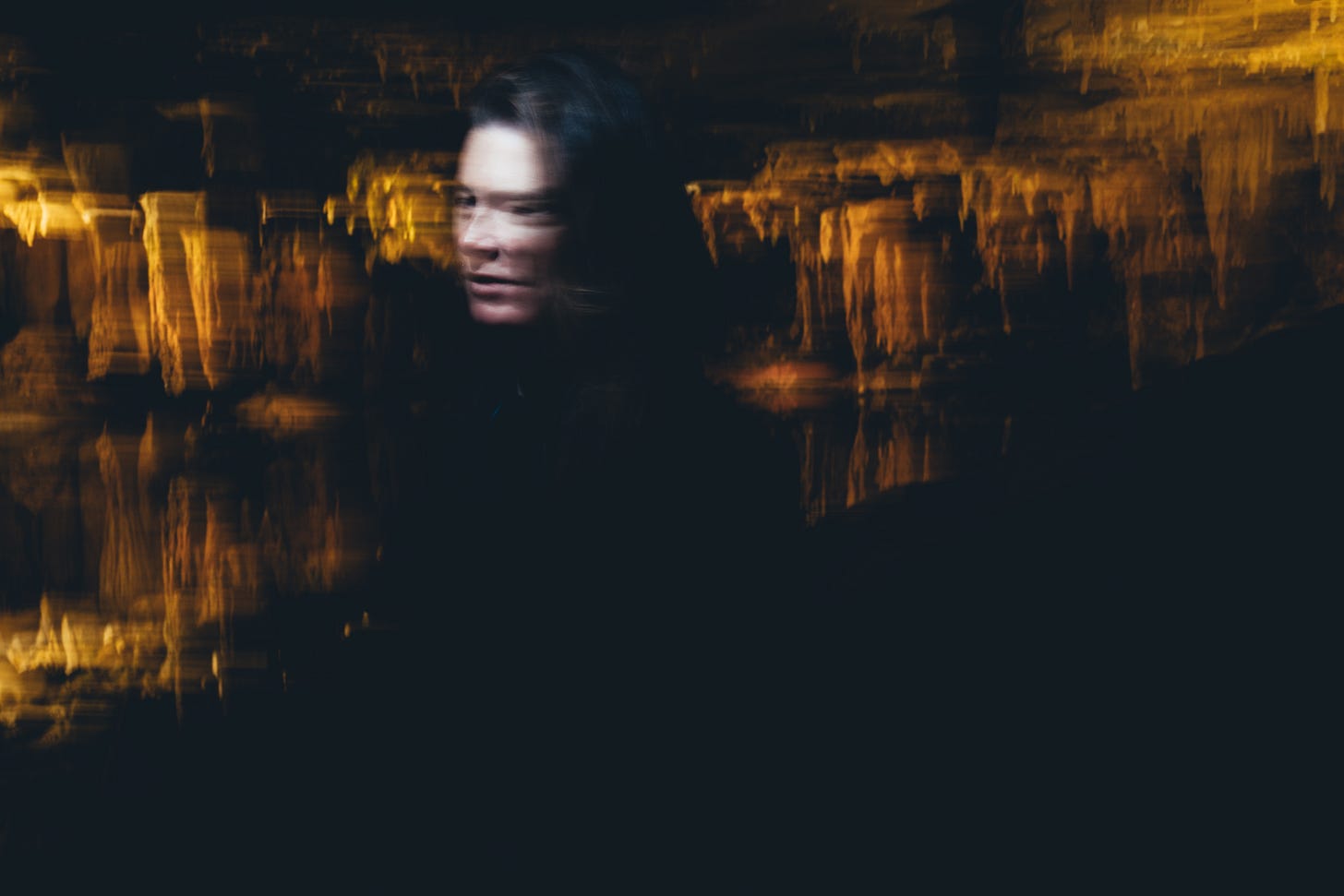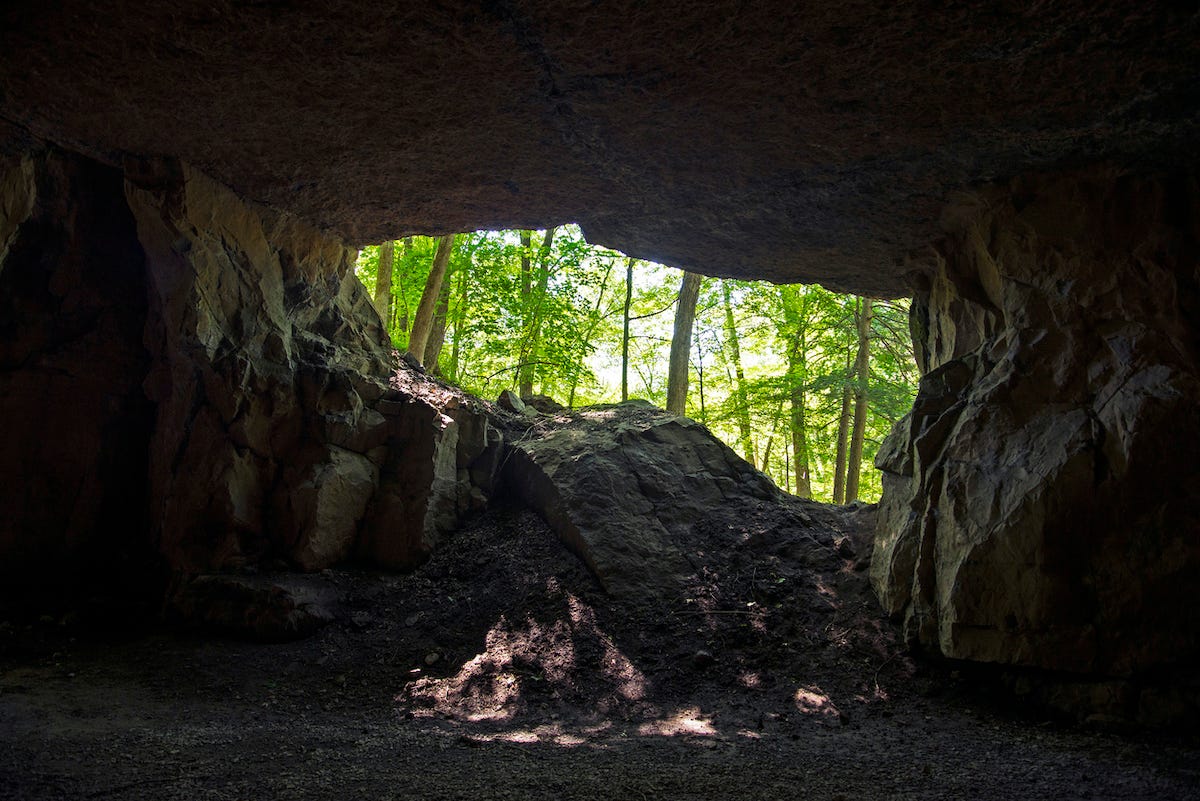Kelli Scarr's Music in Caves
"I now hold the view that grief and loss are not only inevitable but also openings—opportunities for transformation" -Kelli Scarr

1. How has your music practice evolved throughout your life in relation to loss or grief?
I wasn’t conscious of it at the time, but when I first started writing and performing music in my teens and early 20s, it was my way of processing and transmuting grief. One of the earliest times I felt this on a collective level was in college, playing a house concert with my band Moonraker just a few days after 9/11. The weight of that moment was immense, but the energy in that house basement felt transcendent. Looking back now, I can see that we were holding space for ourselves and others to grieve.
As I got older, it became a more conscious channel. In my early 30s, my best friend lost her mother tragically, and witnessing her pain broke my heart. I wrote two songs in honor of her mom and the depth of their connection—those songs ended up on my next two records. It was my way of offering something public and lasting, both to comfort her and to affirm that I would never forget her mother or the weight of that loss.
Now in my 40s, music has helped me process the passing of my grandmother—the first person who ever sang to me. She died while I was working on my latest project, Greater Mysteries, which guides audiences through a mythic journey of death and rebirth. Her passing felt like another invitation to enter the underworld and having that project to channel my grief into meant everything. As I move toward my 50s, I’m feeling that the relationship between my music and grief will only continue to deepen. I now hold the view that grief and loss are not only inevitable but also openings—opportunities for transformation. This belief is the overarching theme of Greater Mysteries and what I will continue to explore in both my creative work and my life.
2. We’d love to hear more about your work with performing music in caves. What does sound in a cave convey that is different from other spaces? How does the practice of performing music in caves reflect your grief process or ability to process death anxiety and mortality?
I’m drawn to caves as ancient spaces of initiation—sites where cultures throughout time have enacted rites of passage that mirror the death process. Caves connect us to death not as something to fear, but as a natural part of the life cycle. They embody the womb and the tomb— we are held by the earth, and reminded where we come from and where we return.
Sonically, caves offer what I crave in a live music experience: total immersion. The acoustics stretch and echo, dissolving the boundaries between sound and silence. There's a reverence in how the tones linger, making space for reflection. Performing in caves strips away distraction and invites a deeper listening. For me, it’s become a sacred practice—one that allows transformation to move through in a way that feels supported, witnessed, and timeless.
3. Both death and mourning are a community process. How does your music practice engage in community to enrich both quality of life as well as quality of death for yourself or others?
Greater Mysteries has been a deeply communal effort. For me, experiencing how the entire project has evolved through each person’s contributions—from the music to the ritual elements to the upcoming cave performances—has been profoundly fulfilling and life-giving. It’s become something far richer than I ever could have created alone. Over 30 people have contributed to the album and performances, and my hope is that working on a project centered on transformation invites everyone involved to reflect on their own relationship to death and change.
The project also features the Mid-Hudson Valley Threshold Choir, which I’m a member of. Our purpose is to bring songs of comfort to those who are dying. Singing at the bedside during such a tender passage has been some of the most meaningful work of my life. Using my voice in service to this moment in the life cycle transforms everyone involved—the person passing, their loved ones, and us as singers. Together, we connect with the luminous mystery that surrounds us at the threshold.
Kelli Scarr is an American singer, composer, and multi-instrumentalist based in New York's Hudson River Valley. She is also the founder of Vera Jean Music, a pioneering record label dedicated to championing the talents of women artists over the age of 40. On June 13, 2025, she unveils Greater Mysteries, an immersive album and performance experience that draws on timeless mythic journeys to the underworld. Born during an artist residency in Crete and recorded in Iceland, it serves as an invitation into the initiatory cycle of transformation—where endings become beginnings, and something new is ready to emerge. The spirit of improvisation animates a richly textured soundscape, where transcendent piano, airy woodwinds, and Scarr’s voice meet the earthy pulse of the rhythm section and the spark of surprise guests. The project unfolds through intimate previews in the Hudson Valley this summer, culminating in immersive cave performances at Widow Jane Mine on September 26 & 27, 2025.
Learn More About Kelli’s Work
Sound & Memory, founded by violinist/composer and certified Death Doula Concetta Abbate, is a music and arts memorial service that provides personalized memorial offerings including live music, original music compositions, recordings and workshops. We explore innovative ways to incorporate music into contemporary rituals for both grief and death, as tradition evolves over time. Our belief is that music has the power to strengthen communities facing the loss of a loved one by evoking the legacy of that person's life.
⭐️ Give the gift of music to the bereaved
⭐️ Support death positive public programs delivered through music
⭐️ Sponsor a person in need of death doula support (end of life planning and legacy building)
Make a TAX DEDUCTIBLE donation to Sound and Memory




